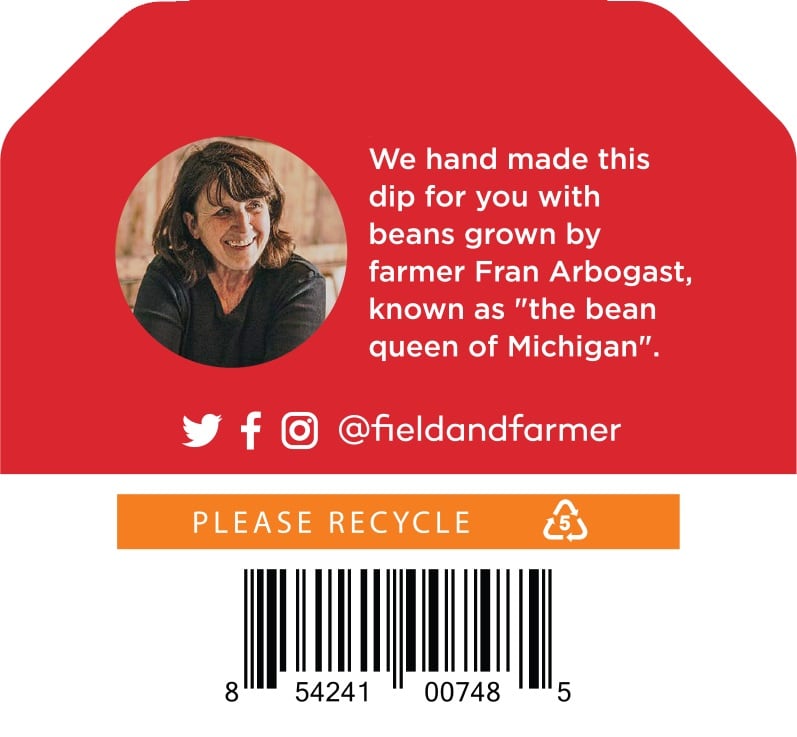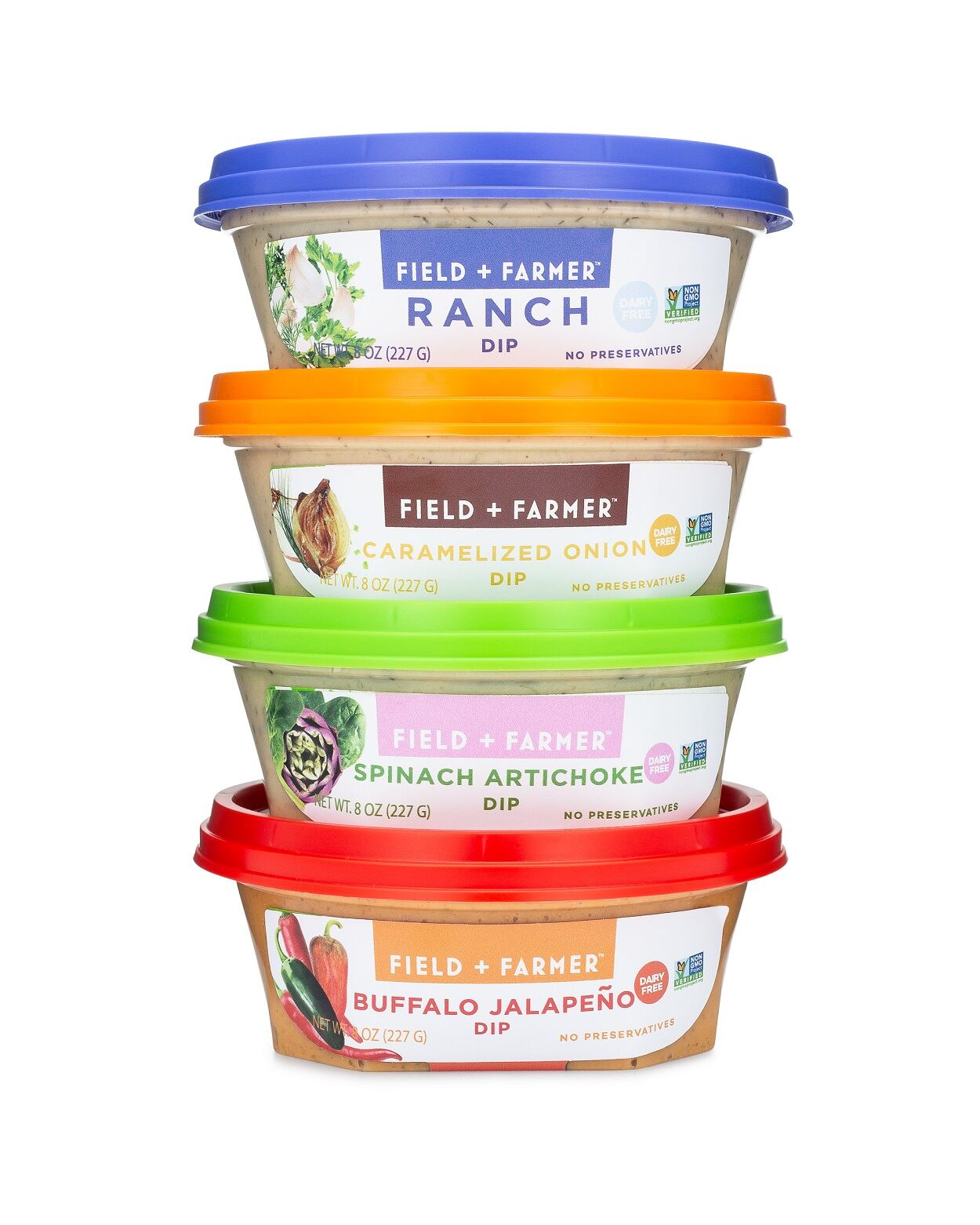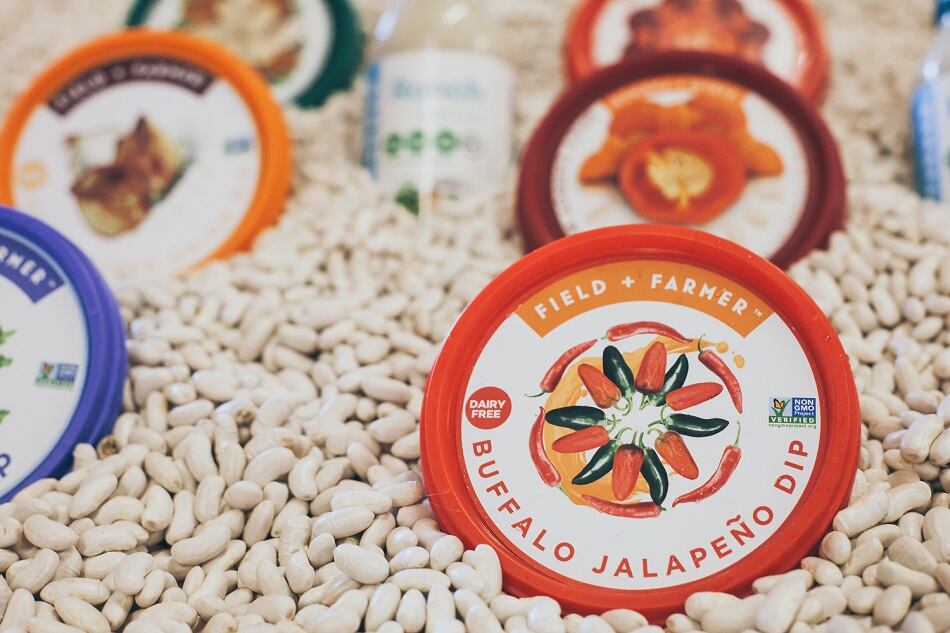The company launched in May 2017 as Here Foods, producing fresh bean-based dips, salad dressings, and cold-pressed juices made from local produce available year-round. With more than 1,000 demos completed in two years, Klein started to notice that 'Here' may not be the best name for the brand and everything it stood for: a commitment to fresh ingredients and supporting farmers.
"We created this beautiful supply chain of ingredients from farmers we know and trust around the Midwest, and we create our products ourselves, but our packaging wasn't doing a good job of telling that story," said Klein.
"If you think of the word ‘Here’, do you think of food? No."
'Geography was dead last'
Klein's logic was partially confirmed when the startup participated in Rabobank's FoodBytes pitch competition held in May 2018 where the brand received neutral to negative feedback on the name from industry stakeholders.
To gain further insight into what consumers thought of the brand and its name, the company conducted a large online survey.
"We asked our customers to rank ingredient attributes in order of importance: fresh, clean label, no preservatives, real whole fruits and vegetables, etc. And geography was dead last."
Local food was still important to many consumers, but the main purchase motivations were different than the company had realized. The Here team discovered that the main drivers for “local” purchasing were the desire for fresher products and to support a greater community, including farmers.
“What we learned is that local is much more than geography. Instead, local is a proxy for trust and transparency, with consumers trusting farmers 4 to 1 over food brands and 5 to 1 over grocery stores," noted Klein.

Though the company's products featured ingredients that came from farmers Klein knows personally -- such as Fran Arbograst, a fourth-generation Michigan bean farmer -- the packaging didn't highlight that important backstory, Klein explained.
"It validated that our relationships with our farmers and work on the farmer supply chain was valuable, but we weren’t telling our story in a way that was making our product jump off shelf.... We didn’t even have the word ‘farmer’ on our packaging," she said.
Though rebranding can be a painful process, Klein admitted, the move was essential to solidifying its marketing direction and connection to consumers.
"Food is moving so fast right now and is getting so competitive that if you’re not listening to your customer or exist to serve your customer, then you don’t really have a business," noted Klein.
After learning consumers' priorities when it came to food, the next step was choosing a brand name. The brand played around with a few options including FarmedHere, Hello Land, Here, and Field + Farmer, and asked their customers their thoughts. Field + Farmer came out on top.
Luckily results were favorable of the general design and look of the packaging (white background with stylized produce photographs), meaning the brand could essentially swap out the name 'Here' for 'Field + Farmer' on all of its products.
'The produce department is behind on plant-based'
Field + Farmer launched nationally in June in Whole Foods stores in Northern California and the brand is aiming to enter 1,100 stores in the Northeast and 600 stores in the South Central region later this year.
Klein noted how the refrigerated sections of many produce departments that house chilled packaged dips, salad dressings, and some juices, have not evolved very far beyond heavily processed, preservative-filled products.
"The produce department is behind on plant-based," said Klein.
"What I’ve seen personally, for example, driving across Iowa and going to a bunch of different HyVees and more conventional retailers is, there’s not a lot of competition in the traditional produce departments which are dominated by brands that I would not characterize as clean label, they’re not plant-based at least in the dressing and dip categories, and we saw a lot for room for innovation there."
Its newest Plant Party dips line includes plant-based takes on classic dips such as artichoke & spinach, onion, and a vegan ranch, which are meant to give consumers a plant-based, clean label, alternative to conventional dips that contain ingredients such as xantham and guar gums and mono- and di-glycerides.

The brand was also conscious of price (SRP $3.99 for the dips) knowing that if it wanted to compete outside the natural channel, it had to remain at an affordable price point.
"While they aren’t a $1.99 or $2.99 product, they aren’t completely out of range and that allows us to sell in traditional produce departments," Klein said.
"We really want our clean plant-based foods to be accessible to everyone."


